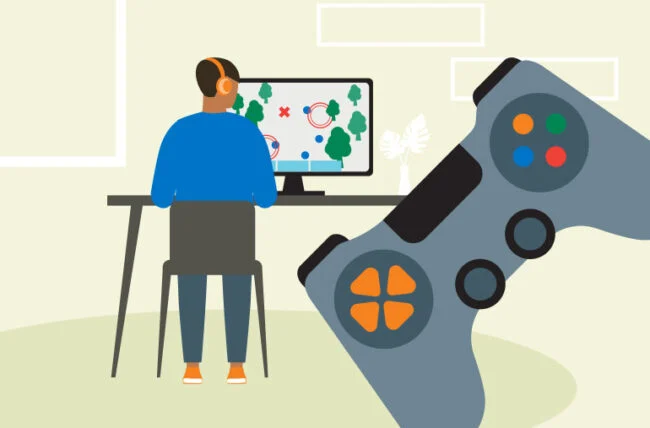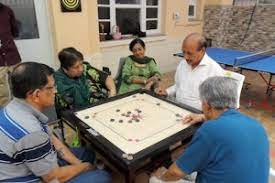
Playing video games may be able to boost your brain. Here’s how.
Gaming floods the brain with dopamine, which triggers the pleasure center and gives gamers a rush. That’s why they can play for hours. It also trains their brains to solve problems quickly, and improves attention and working memory.
1. Improved Memory
Video games force your brain to remember lots of things at random intervals and provide the practice it needs to improve long-term memory. This is especially true of games with longer storylines and more complex tasks.
Video game training can also help with high cognitive abilities, such as multi-tasking and focusing for long periods of time. Even violent action games like Call of Duty can benefit these skills. However, it is important to note that the type of video game matters, as each type of video game affects the brain differently.
In particular, games that require spatial strategy and exploration have been shown to increase grey matter in the hippocampus. This is a key part of the memory system and helps to explain why players who play these types of games do better at memory tests. A study from Universitat Oberta de Catalunya has gone one step further, showing that gaming can lead to cognitive changes that persist even after a person stops playing video games. This is known as neural plasticity. These changes can include structural changes, such as increases in certain brain regions, and they can also include functional changes, such as improved working memory.
2. Better Spatial Memory
Researchers have found that playing video games can improve your spatial memory and ability to focus. This is likely because video games are designed to immerse players and challenge them with tasks that require mental flexibility and problem-solving. These skills are necessary for navigating real-life situations, like finding your friends in a crowd or remembering where you put down your keys.
For example, a 2020 study found that gamers who played logic games, or “brain games,” showed better ability to discern patterns and different shades of gray. In fact, those who played these games for nine weeks experienced a 43 percent improvement in contrast sensitivity compared to non-gamers. This could help people with vision problems as well as people who are trying to find things in the dark.
However, if you are interested in improving your spatial memory and ability to focus, it’s important to avoid violent video games. Violent games have been shown to reduce activity in the brain’s prefrontal cortex, which is important for regulating emotions and controlling behavior. This can lead to increased aggressive behaviors and thoughts, desensitization, and decreased empathy.
3. Better Visual Perception
Video games require fast reactions to visual stimuli and can improve hand-eye coordination, focus and other cognitive functions. Action video games especially, where you participate in quick-time events (or QTEs) where you push a button within a very short period of time in order to trigger an event in the game, have been shown to improve your ability to ignore distractions and quickly process visual information.
Scientists used to believe that a person’s ability to perceive slightly different shades of gray could not be improved, but a University of Rochester study has found that gamers can actually train their brains to see better. After just a few weeks of playing first-person shooter games, players were 58 percent more able to detect subtle differences in shades of gray.
This improvement is likely due to a combination of training the brain to recognize visual patterns and increasing the concentration level required for fast-paced action games. The improvement also translates into faster and more accurate responses to other visual stimuli, such as moving objects and patterns. This enhanced perception may even help those with dyslexia.
4. Better Attention
Video games are often played in fast-paced environments that require players to quickly pick up on new information. This can improve your ability to focus and concentrate, which is beneficial for work and school.
A study published in Scientific Reports found that gamers had increased gray matter volume and better integration of brain networks related to attention and visuospatial skills. These results support previous research suggesting that gamers are more proficient at attention tasks, with a greater ability to filter out irrelevant visual data.
One other recent study also suggests that playing action video games can help you improve your attention skills. The researchers compared kids who played League of Legends with kids who didn’t play the game and then tested their visual selective attention (the ability to pick up on relevant visual data and ignore distracting data).
They showed each participant a square in the center of a computer screen, followed by the flash of another square in a different part of the screen. The participants then had to identify the location of the second square relative to the first. The children who played League of Legends showed significantly better performance on the visual selective attention task, indicating that they had improved their attention abilities after just a few hours of gaming.
5. Increased Creativity
While video games get a bad rap for promoting violence, nurture aggressivity and make kids lazy, they actually boost creativity and help keep your brain stimulated. They can also improve your powers of concentration, memory and languages. You can even learn history, geography, cooking, chemistry and architecture by playing video games. And let’s not forget that the famous Tomb Raider game has done more for archaeology than any textbook.
According to one study, the more you play video games, the higher your level of creative intelligence. This increased creativity may be because of the dopamine rush that occurs when you complete a level in a game, which helps prime your brain to handle more work.
However, it’s important to note that different video games affect the brain in different ways. For instance, action video games are associated with improved navigation and perception, while strategy games can lead to an increase in spatial memory. In addition, some studies have shown that violent video games can cause players to become habitually desensitized to the suffering of others.





